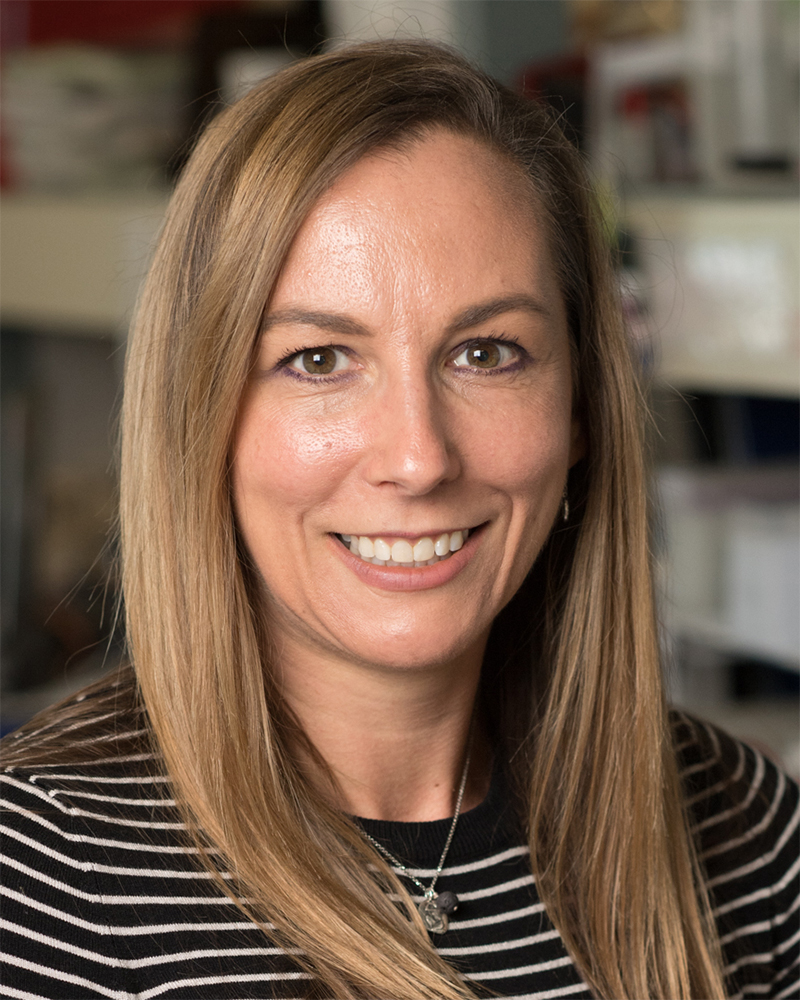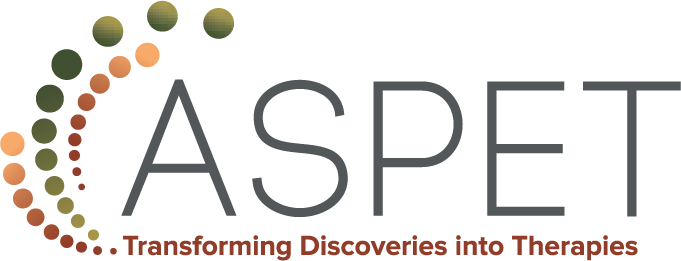A Conversation with ASPET’s Division for Molecular Pharmacology Chair Michelle Kimple, PhD
 Michelle Kimple, PhD is a Professor of Medicine in the Division of Endocrinology, Diabetes, and Metabolism and a Faculty Affiliate, in the Department of Cell and Regenerative Biology, both at the University of Wisconsin-Madison. Dr. Kimple is also Co-Director at the University of Wisconsin-Madison Diabetes Research Center Islet Core. She also serves as the Chair of the ASPET Division for Molecular Pharmacology. Dr. Kimple received her PhD in Biochemistry and Biophysics from the University of North Carolina, Chapel Hill and completed her postdoctoral fellowship in Pharmacology and Islet Biology from Duke University.
Michelle Kimple, PhD is a Professor of Medicine in the Division of Endocrinology, Diabetes, and Metabolism and a Faculty Affiliate, in the Department of Cell and Regenerative Biology, both at the University of Wisconsin-Madison. Dr. Kimple is also Co-Director at the University of Wisconsin-Madison Diabetes Research Center Islet Core. She also serves as the Chair of the ASPET Division for Molecular Pharmacology. Dr. Kimple received her PhD in Biochemistry and Biophysics from the University of North Carolina, Chapel Hill and completed her postdoctoral fellowship in Pharmacology and Islet Biology from Duke University.
How did you get started in pharmacology?
As a PhD student in Biochemistry and Biophysics at UNC-Chapel Hill, I had the opportunity to work with two leaders in field of G protein signaling, John Sondek and David Siderovski, applying X-ray crystallographic methods to illuminate the mechanisms regulating G protein activity and signal transduction pathways. For my postdoctoral training, I aspired to apply my expertise in G protein signaling to a problem directly relevant to human health. This aspiration led me to the laboratories of Patrick Casey and Christopher Newgard at Duke University, who had just initiated a collaborative project aimed to elucidate the role of the unique inhibitory G protein alpha subunit, Gαz, in regulating pancreatic beta-cell function and mass in metabolic health and diabetes. I am extremely privileged more than 20 years later to still be studying these same fundamental questions in my independent research program. While I credit all my mentors with giving me my start in pharmacology, it was during my exceptional postdoctoral training with Drs. Casey and Newgard that I truly became a pharmacologist.
How did you first get involved with ASPET?
I first became involved with ASPET during my postdoctoral training, when the ASPET scientific sessions were held in conjunction with those of several other professional societies at the annual Experimental Biology meeting. I applied for and received several ASPET postdoctoral travel and presentation awards to Experimental Biology, which were incredibly valuable to me both personally and professionally. Becoming more well-known in the pharmacology field during my early career led to invitations to serve as a poster or oral presentation judge for the ASPET Divisions for Molecular Pharmacology and Translational and Clinical Pharmacology graduate and postdoctoral competitions, and in 2016, I was selected as the Division for Translational and Clinical Pharmacology Early Career Awardee. These formative experiences solidified in me the desire to give back to the Society, which I did in 2019 when I was asked to run for Secretary/Treasurer-elect of the Division for Molecular Pharmacology’s Executive Committee; a committee for which I now serve as Chair.
What do you want the ASPET membership to know about you and your ideas on how to move the organization forward during your term?
My membership and involvement in ASPET benefitted me immensely as an early-career scientist, and it is in targeting this career stage I believe ASPET has the most potential to advance its strategic mission. I am proud to have spearheaded the Division for Molecular Pharmacology Early Career Abstract Award to support presenting scientists at the start of their independent careers, an award that is now offered by all ASPET Divisions. I was also a strong advocate of the Division for Molecular Pharmacology providing financial support to the Transatlantic ECI GPCR Symposium, support that reaped rewards in attracting new ASPET members and submissions to ASPET journals. I was thrilled to be asked by the organizers to present to symposium attendees about the ASPET Division for Molecular Pharmacology, what we do, and how early-career scientists can get involved. I believe ASPET’s involvement in the Transatlantic ECI GPCR Symposium should serve as the model for how ASPET and its divisions consider requests for external meeting support in advancing our strategic mission. Finally, I am a passionate advocate for promoting Inclusion, Diversity, Equity, and Accessibility (IDEA), and am currently working with other Molecular Pharmacology division members to brainstorm concrete ways in which ASPET can facilitate and support IDEA initiatives, particularly in these chaotic times.
What has been your proudest accomplishment in your career so far?
While I am proud of many of my scientific accomplishments, my proudest career accomplishment so far is not directly related to my scientific research program at all. Instead, it was, in 2023, the publication of my piece, “How My Bipolar Diagnosis Changed My Scientific Career,” in Nature. This column led to national and international speaking opportunities and interviews, including for Women Inspiring and Elevating Leadership in Diabetes (WIELD), Women in Bio-RTP Chapter, Nature Careers, Harvard Business Review, and The Scientist Spotlights Initiative. Through these advocacy activities, I’ve had the opportunity to serve as a mentor to scientists at all levels of their careers, many of whom have written to say my mentorship has given them hope to persist and succeed in the face of serious life and career challenges.
What advice would you give young scientists who are just starting out in their careers?
My first piece of advice would be to get involved in your professional societies! Attend their annual meetings and apply for any travel and oral presentation awards you are eligible for. As I describe above, my early involvement in ASPET truly helped springboard my career by giving me the opportunity to present my research to and network with a remarkable group of leaders in the field of pharmacology. While it may seem cliché, out of all the professional societies I belong to, ASPET has truly been the best “bang for my buck” as far as contributing to my career success. My second piece of advice is to take care of yourself and your mental health first, and success will follow. When I was an assistant professor on the tenure track, I said yes to every opportunity I thought could advance my career success, but, as I describe in my Nature piece, the year I was going up for promotion to associate professor with tenure, it all came crashing down in spectacular fashion. Fortunately, I had the support of my department and institution in my recovery and I was able to return to work full-time and with renewed passion, but if I had prioritized myself over my perceived accomplishments, I may not have had to go through that experience at all.


